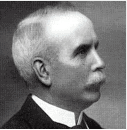I was working for an international manufacturer in a team that was researching Unix workstations for Computer-aided Engineering. Ed was our current manager, one of a succession. We all smiled benignly at him when he entered his pigpen in the morning, and bade him good evening when he left, but otherwise saw little of him.
One day, he popped in my cubicle (pigpen) to see me. “I hear you are a bit of a writer”, he said, by way of initiating the conversation.
“I’ve dabbled,” I admitted, “a few books, several articles, and a pile of management documents and strategy papers that will be read back to me in in perpetuity by gibbering demons of hell, in punishment for my presumption in having tortured all those managers who initially had to read them.”
“Well, I wonder if you would read through this just to double-check it. It is an important strategy document dealing with the work of the team, and I’d like it to stick”.
I weighed the forty-page document in my hand. “Good and thick” I commended, appreciatively. “What are you trying to conceal in this?”
“Nothing!” he flushed an endearing shade of pink.
“Nobody ever wrote anything this thick or obtuse deliberately unless they wanted to hide some inconvenient truth in the middle of it. If you’ve written something this long by mistake, then I’ve news for you: nobody will ever read it.”
“Of course it is to be read! There is a lot of information that needs to be there.”
“I’ve never known a manager who is either willing or capable of reading anything more than a one-page and facer. Even then you can see their lips move as they read it.”
I’m not the only seasoned writer of reports who, when compelled to write one, has put this to the test by putting on page three the words “anyone who reads this gets a prize. Go to Phil Factor; say the words ‘Zim Zala Bim’ and he will give you a tenner.” I’ve never had to pay out.
Ed looked disconcerted. He knew I was speaking the truth.
I continued, “The business one-pager and facer, whether for a project proposal, or for any document that goes to senior management, is the most important document you will ever write, and demands meticulous effort. If a document is well phrased, readable and succinct, it is likely to be impressive and do what you want. A second-rate document does you no good at all. The only visibility you get to senior management is through these documents. Whether you get it right or wrong, people notice.”
I paused. I remember one graduate recruit who burned with ambition to climb the management ladder. We worked in the same office and I watched, fascinated, as he spent weeks nursing the one document, trying different phrases, re-sequencing it, getting the narrative just right. He tried it out on whosoever he could snare. He noted every criticism. I was impressed. When he issued the document, it brought him instantly to the attention of management as a high-climber.
“Nobody other than Proust ever got well-known through sheer volume rather than quality of writing. When Coleridge put down the pen after writing ‘The Rime of the Ancient Mariner‘, he was immortal. He never needed to write another poem. In fact, he just needed to pen this bit, which I can quote from memory…
“Like one, that on a lonesome road
Doth walk in fear and dread,
And having once turned round walks on,
And turns no more his head;
Because he knows, a frightful fiend
Doth close behind him tread.”
Ed was perspiring. “I think you’re probably right, but I don’t think I can do it. I’ve gone through every sentence.”
Any team must support its manager. I sighed and grabbed the thick pile of paper. “OK, leave it with me for a week, and I’ll see what I can do”.
I read it and shuddered. It was full of words such as address, assignment, collaborative, coordination, collaboration, community, concerns, domain, evolution, execute, identify, indigenous, intrinsic, issues, network, objectives, operational, resilient, resonance, synergy, scenario, and social.
The delete key is the author’s best friend. If something isn’t vital, cut it out. If a chapter or section isn’t really working, then excise it. To write well is a desperate task, involving a number of different skills and a ruthless streak. The task of the editor is easier as he doesn’t feel that stab of pain as he deletes weeks of the author’s work, though he allows himself to sigh with pity. He laughs rather than cries, however, when one of those multi-syllable smorgasbords of dignified periphrastic discursiveness gets the chop. I warmed to the work. It was like grouse shooting. Actually, a closer analogy is to the archaeologist, picking delicately through the mounds of…err…soil, scraping away the dirt to reveal the lost artifact.
A week later, I proudly presented the new document: a neat one-pager with a facer. In order to pack in all the meaning of the original forty pages, I’d had to winch down the font-size a little, and perhaps the paragraphs could have had a bit more space to breathe. However, I’d left out nothing vital.
Conflicting emotions played out on Ed’s face as he read it. Anger, wonder, grief and delight played in turn across his face. Gone was the passive voice, used to deploy dignified phrases in the manner of some minor deity. Gone were the textbook mannerisms, learned asides and the references to his own splendid competence. What remained gave a clear description of the project proposal, in words of one syllable where possible.
It was hot.
“Don’t worry, your original document still exists if you are unwise enough to use it.”
He was not.
Managers read Ed’s one-pager with the unaccustomed pleasure of being able to understand it. Word got around that Ed had “a grip on what’s required”. Shortly after, he moved on to a managerial position in Central IT, and we had another bright young manager to ‘break in’. It was just part of the job.
I thought nothing more of Ed and his one-pager. Life moved on. Then, one day he phoned. “Hi, Edward here,” he sounded confident and assertive. “You remember that one-pager you edited for me a while ago?”
“Edward? Umm… Ah! Ed. Yes, of course, author of the unforgettable phrase “There is a perceived requirement for a retroactive methodological migration to legislative prospectivity.”
“Good, good, good”, he interjected, brushing aside my happy memories. “I have been tasked with a major and radical overhaul of the engineering strategy for product testing. Of course, I can easily do the work but it would be handy if you could just cast the editor’s eye over the strategy document.”
“You need my help?”
“No, no, we have a talented team here in Central IT, but you might be able to cast a fresh angle on the document; the outsider’s view.”
I felt confused. “So you don’t need my help?”
There was a pause. “Alright, yes, I do. The current document contains some great stuff but it goes on for about sixty pages and I worry that the central message will be…lost.”
“Well, sadly, I can’t justify the time to my boss. I did yours because it was part of my job at the time to assist you. I’m working on other strategy documents now.”
There was a pause. “No worries, I’ll get you transferred to my team in Central IT. It is a very strategic project and I get whatever or whoever I ask for.”
Although alarmed by the prospect, all went quiet, and after a week or so, I’d forgotten about it again, and I returned to my peaceful but mundane tasks, defining IT strategies. When the call came it was unexpected.
“Hello, Edward here again,” he sounded a little less breezy than last time “Listen, Phil, there are slight complications. When I tried to get the transfer ratified by my manager, he spluttered into his cup of tea and went an odd purple color. He referred to you as ‘that Wild Man Factor’. Is it really true you did a comic turn at the Christmas party in which you said that the IT Director has all the charisma of a dead fish, just before Rigor Mortis sets in?”
“It’s not what you say, but the way you say it that gets the laughs.”
“But the gag about him looking like a masterpiece of the embalmers’ art sank home too, evidently.”
“The rest of the audience liked it.”
“And did you really give an hours’ presentation to the head of CAE in IT, revealing several fundamental flaws and misreporting in historical data, and our catastrophic inability to transfer information between systems?”
I sighed. A consultant is outside the system and one’s whole thinking is reoriented. There is no scrabble for promotion, and less incentive to strive to be noticed or even liked. It’s a double-edge sword. It leaves one freer to tell truths when others wouldn’t, but it can also loosen the tongue when diplomatic silence is required. As long as one remained essential to the harmonious running of IT, that alone guaranteed that the knives stayed in their sheaths.
“One has to be cruel to be kind, occasionally. Everyone knew but nobody had dared to tell him.”
“Well, you’ve certainly burned some bridges. When I told my team you might be joining them, they told me you were so arrogant as to be almost unemployable. I’ve got more chance getting you through the gates of Paradise than getting you anywhere near Central IT”
I was relieved but tried not to show it.
“In that case, Ed, I can’t see what I can do to help. I can’t do the edit in work hours unless you can get my current boss to okay it. That’s unlikely, considering the pressure we’re under to deliver our report.”
Shortly after, he hung up, crestfallen. I felt bad, and in most cases, I would have found a way to help, squeezing in some editing time over already busy weekends, but this time I had a reason to be reticent.
Ed was right that I’d burnt a few bridges but not all. To one or two key figures in Central IT, including one who I’d unkindly joked about at the Christmas party, my editing skills were long established and hard to relinquish entirely. I still received the occasional sensitive document to “massage”, on the quiet.
In editing these documents, one becomes like a father confessor, privy to some secrets that even now I won’t divulge. One of these recent documents had made it plain that Ed’s project was doomed. I couldn’t tell Ed how I knew, but within the month his project would be canned and any further energy spent on it would contribute only to climate change.
Generally, I didn’t mind spending time fruitlessly as long as someone paid me to do it, but somehow the art of writing was like the art of acting. It had to see the light of day and face an appreciative audience. Otherwise, I couldn’t pick up the enthusiasm to do it.
I went back to my work. Then it struck me: The ‘wild man’ jibe. Perhaps Coleridge’s poem, the Ancient Mariner, really got to the heart of it: of feeling compelled to have an audience. The poet, as Ancient Manager, cursed to recount the horrors of his past work and the sins he committed.
It is an Ancient Mariner, and he stoppeth one of three,
‘By thy long grey beard and glittering eye, Now wherefore stopp’st thou me.’
…
He holds him with his skinny hand. “There was a ship,” quoth he.
`Hold off! unhand me, grey-beard loon!’ Eftsoons his hand dropped he.
He holds him with his glittering eye -The Wedding-Guest stood still
And listens like a three years’ child: The Mariner hath his will.
This is another of Phil’s ‘Confessions of an IT Manager’, a series of articles which have been compiled into a book that has been enjoyed for several years by IT staff.
‘Confessions of an IT Manager is a book form of a series of articles first written for Simple-Talk by a seasoned IT manager who tries to explore the real world of work in IT rather than the world as we’d like to think it is. By writing under a pseudonym he is able to get uncomfortably close to real life, real events and believable people, describing experiences and predicaments that were occasionally painful, sometimes profitable but always funny.’ (Google Books review) A great read, with a lot of substance, the book will be enjoyed a lot more by those who have some experience in the field. There are moments where laughter is inevitable so it’s not a good choice of reading in the office while you pretend to be deeply concerned by some technical issue. ’ (Google Books review)
You can download it from here





Load comments